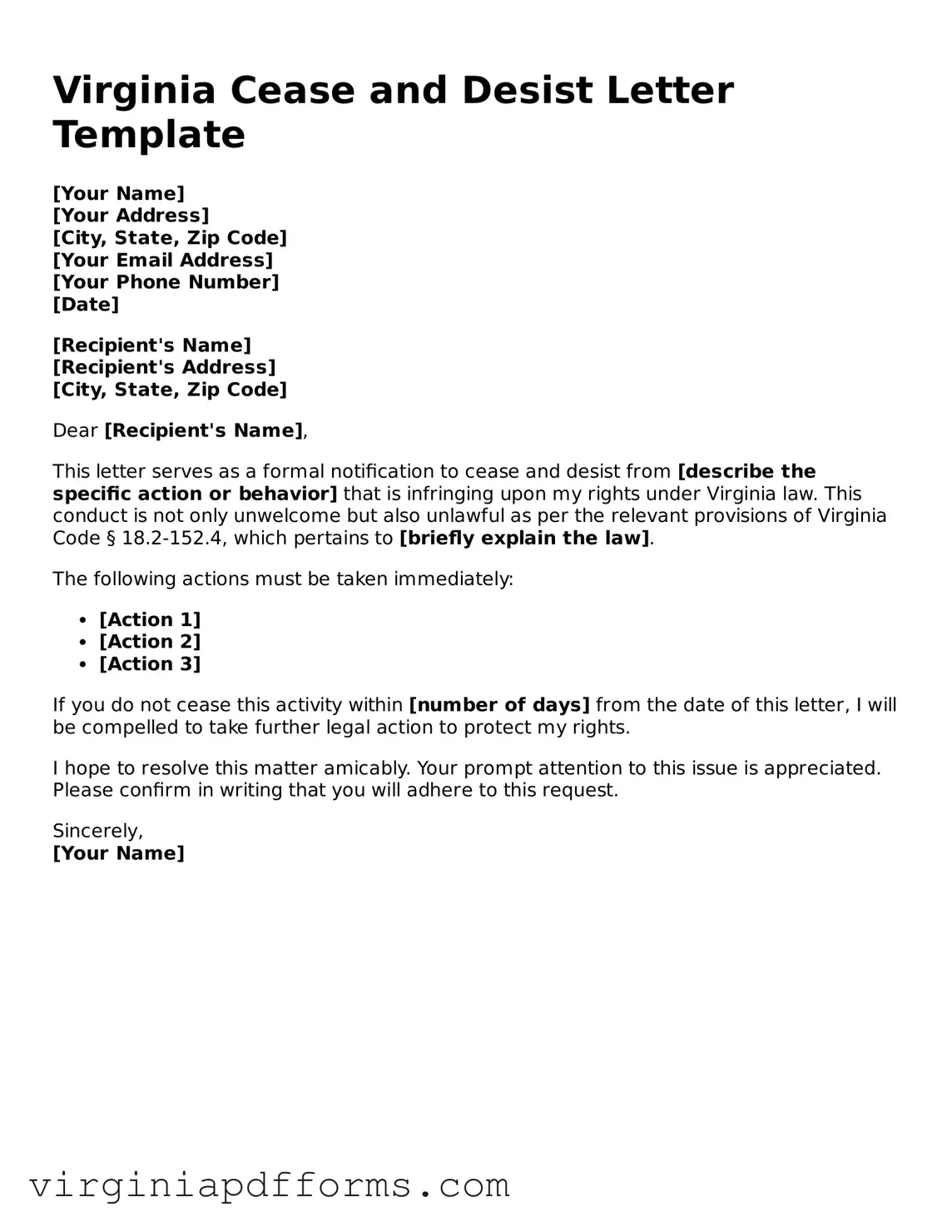Attorney-Approved Virginia Cease and Desist Letter Document
A Virginia Cease and Desist Letter is a formal document that requests an individual or organization to stop engaging in certain activities. This letter serves as a warning, often before taking further legal action. Understanding how to properly use this form can help protect your rights and interests.
Access My Document Now

Attorney-Approved Virginia Cease and Desist Letter Document
Access My Document Now

Access My Document Now
or
Free Cease and Desist Letter File
Need this form wrapped up fast?
Finish Cease and Desist Letter online — edit, save, download without effort.